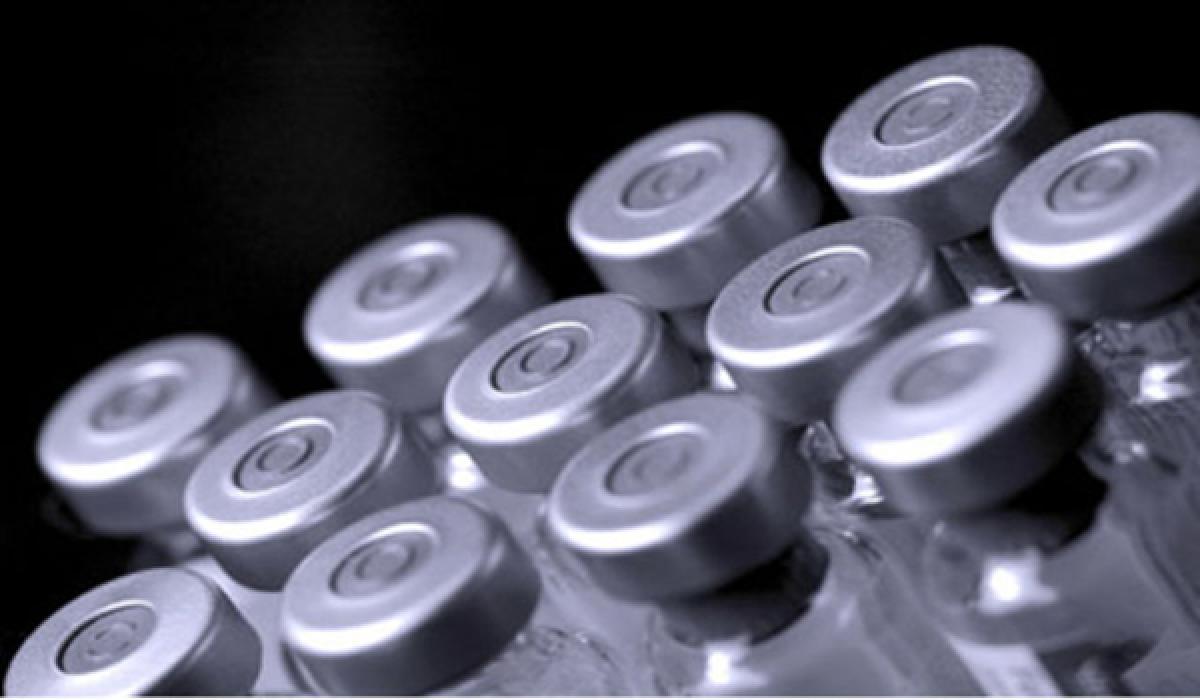Live
- Sudanese army recaptures capital of Sinnar State in central Sudan
- Kishkindha Kaandam Review: Some movies prove not to compromise in having a good cinematic experience and this is one of them
- Son-rise: Hemant Soren grows taller as tribal leader, makes father proud
- ISL 2024-25: 10-man NorthEast United FC hold on to take three points vs Punjab FC
- BGT 2024-25: Jaiswal’s application, commitment to form a partnership was so impressive, says Gilchrist
- BGT 2024-25: Personally, I am very happy with my performance, says Harshit Rana
- Pakistan's Lahore remains world's most polluted city despite light drizzle
- Asha Nautiyal retains Kedarnath for BJP, to be back as MLA after 12 years
- India leads world in science, innovation research: Minister
- Flash flood in Indonesia's South Tapanuli claims two lives
Just In
Innovative Strategies Adopted by Manufacturers to Sustain in Oncology Drugs Industry


Increasing sales of oncology drugs to raise share prices,reacquisition of rights, and rolling down prices of drugs are strategies formulated by manufacturers to strengthen their position in the industry.
Increasing sales of oncology drugs to raise share prices,reacquisition of rights, and rolling down prices of drugs are strategies formulated by manufacturers to strengthen their position in the industry.
Recent advancements in oncology therapies have helped researchers and scientists to move closer to finding a cure to various types of cancers. Oncology drugs are getting approval during its development stage which offers extensive opportunities for growth.
Immunotherapies are gaining prominence in the global market owing to its higher effectiveness and lesser side effects as compared to other therapies. Many pharmaceutical and biotechnology companies are focusing their R&D activities on personalized medicines and biological & targeted drug therapies with its growing demand across the world. In its report on the oncology drugs market, Allied Market Research states that the market is expected to reach $111.9 billion by 2020, registering a CAGR of 7.1% from 2014 to 2020. Recent technologies, competitive intelligence, detailed segmentation, and key manufacturers are highlighted in the report along with precise statistics.
Merck’s revenue grows with spurring sales of oncology drugs:
The growth in sales of oncology drugs is helping pharmaceutical companies to grow their overall revenue. Merck, a leading pharmaceutical company based in U.S. has reported increased quarterly earnings owing to rise in sales in immuno-oncology drug, Keytruda, and diabetes treatment, Januvia. This helped its shares to rise by 2 percent in premarket training. The company reported that its revenue grew by 1 percent in second quarter of 2016 to $9.84 billion, more than analyst’s estimation of $9.78 billion.
Keytruda, a recently approved drug for treatment of lung cancer and melanoma generated sales of $314 million (€281m), which is $20 million more than the estimation of analysts. It is expected to boost Merck’s earning for years to come with approval by FDA for its expanded use for a larger population. Keytruda was approved for advanced lung cancer patients who could not get benefits of previous treatments in October 2015. But recent trials proved that it is also beneficial for untreated patients, which will help the company to get approval for extended use by regulatory bodies. Merck is the second biggest US drugmaker and one of the largest in the world. It operates as Merck Sharp &Dohme outside US and Canada.
Reacquisition of rights of drugstrengthensBristol-Myers’ position worldwide:
Manufacturers are adopting strategies such as acquisition of rights of various oncology drugs to strengthen their position in the industry. Rights to an oncology drug, ASLAN002 (BMS777607) are reacquired by Bristol-Myers Squibb Company. Aslan Pharmaceuticals, a biotech company had rights of ASLAN002 in territories of China, Taiwan, Korea, Australia, and other Asian countries. Bristol-Myers acquired rights of ASLAN002in November 2011 for aforementioned countries and reacquisition will help the company in consolidating their oncology pipeline in Asian region. Other oncology drugs of Bristol-Myers include Sprycel,Opdivo, Yervoy, and Empliciti. An upfront payment of $10 million will be paid to Aslan.
According to terms and conditions of the reacquisition, Bristol-Myers presumes the responsibility for development,expenses,and commercialization activities related to the drug.This reacquisition assists Bristol-Myers to tap into emerging markets of China and India, which has large population base and low expenses in clinical trials.
Manufacturers cut prices to get NHS approval:
Drug companies are rolling down prices of oncology drugs to avoid getting banned for NHS use. Followed by the closure of cancer drugs fund, four leading manufacturers have lowered prices of drugs to avoid a ban if National Institute for Health and Care Excellence (Nice) does not find it cost-effective.There were 41 oncology drugs in the Cancer Drugs Fund at the time of closure in March 2016.As a result of the new appraisal process of Nice, three manufacturers of drugs rolled down their prices. The prices of pemetrexed for lung cancer, bosutinib for chronic myeloid leukaemia, and cabazitaxel for advanced prostate cancer are dropped to a stage to get a recommendation of Nice for NHS use.
“Companies are finding it possible to revise their value proposition—if I can put it like that—enabling us to turn what would originally have been a ‘no’, which is why they were in the Cancer Drugs Fund, into a ‘yes’,” said Sir Andrew Dillon, Nice’s chief executive. “That is good because obviously, the NHS can maintain access to that drug as opposed to having to say sorry—you are out.”The tougher reappraisal tactics of Nice are enforcing manufacturers to reconsider the prices and some of the manufacturers needed to cut their prices. Some of the manufacturers are furious with Nice as its stringent regulations might hamper further medical progress for drugs. With these strategies, manufacturers are aiming for capitalizing on promising opportunities and consolidate their positions in the oncology drugs market.

© 2024 Hyderabad Media House Limited/The Hans India. All rights reserved. Powered by hocalwire.com






